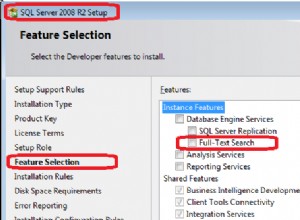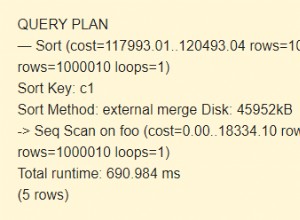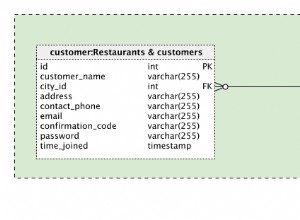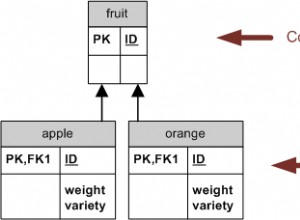Tentei encontrar uma solução para o mesmo problema e encontrei a seguinte resposta:
class NPDO {
private $pdo;
private $params;
public function __construct() {
$this->params = func_get_args();
$this->init();
}
public function __call($name, array $args) {
return call_user_func_array(array($this->pdo, $name), $args);
}
// The ping() will try to reconnect once if connection lost.
public function ping() {
try {
$this->pdo->query('SELECT 1');
} catch (PDOException $e) {
$this->init(); // Don't catch exception here, so that re-connect fail will throw exception
}
return true;
}
private function init() {
$class = new ReflectionClass('PDO');
$this->pdo = $class->newInstanceArgs($this->params);
}
}
História completa aqui:https://terenceyim. wordpress.com/2009/01/09/adding-ping-function-to-pdo/
Alguém estava pensando em usar PDO::ATTR_CONNECTION_STATUS , mas ele descobriu que:"
$db->getAttribute(PDO::ATTR_CONNECTION_STATUS) continua respondendo “Localhost via soquete UNIX” mesmo depois de parar o mysqld". 



